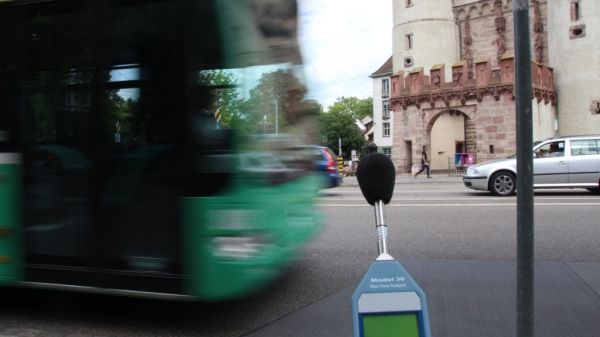Air pollution and transportation noise are both associated with an increased risk of heart attacks. Studies on air pollution, which do not take into account traffic noise, tend to overestimate the long-term effect of air pollution on heart attacks. These are the results of a study conducted by the Swiss Tropical and Public Health Institute and published today in the European Heart Journal.
Where air pollution is high, the level of transportation noise is usually also elevated. Not only air pollution negatively impacts health, but also car, train and aircraft noise increases the risk for cardiovascular diseases and diabetes, as previous research has demonstrated. Studies investigating the effect of air pollution without sufficiently taking into account the impact that noise exhibits on health, might overestimate the effect of air pollution. These are the results of a comprehensive study conducted by the Swiss Tropical and Public Health Institute (Swiss TPH), which was published today in the peer-reviewed European Heart Journal.
The study looked at the combined effects of air pollution and transportation noise for heart attack mortality, by considering all deaths that occurred in Switzerland between 2000 and 2008. Analyses that only included fine particulates (PM2.5) suggest that the risk for a heart attack rises by 5.2% per 10 µg/m³ increase in the long-term concentration at home. Studies which also account for road, railway and aircraft noise reveal that the risk for a heart attack attributable to fine particulates in fact increases considerably less; 1.9% per 10 µg/m³ increase. These findings indicate that the negative effects of air pollution may have been overestimated in studies which fail to concurrently consider noise exposure.
Read more at Swiss Tropical and Public Health Institute
Image: Considering transportation noise should be an integral part of any studies looking at the impact of air pollution on health. CREDIT: Jana Sönksen / Swiss TPH


